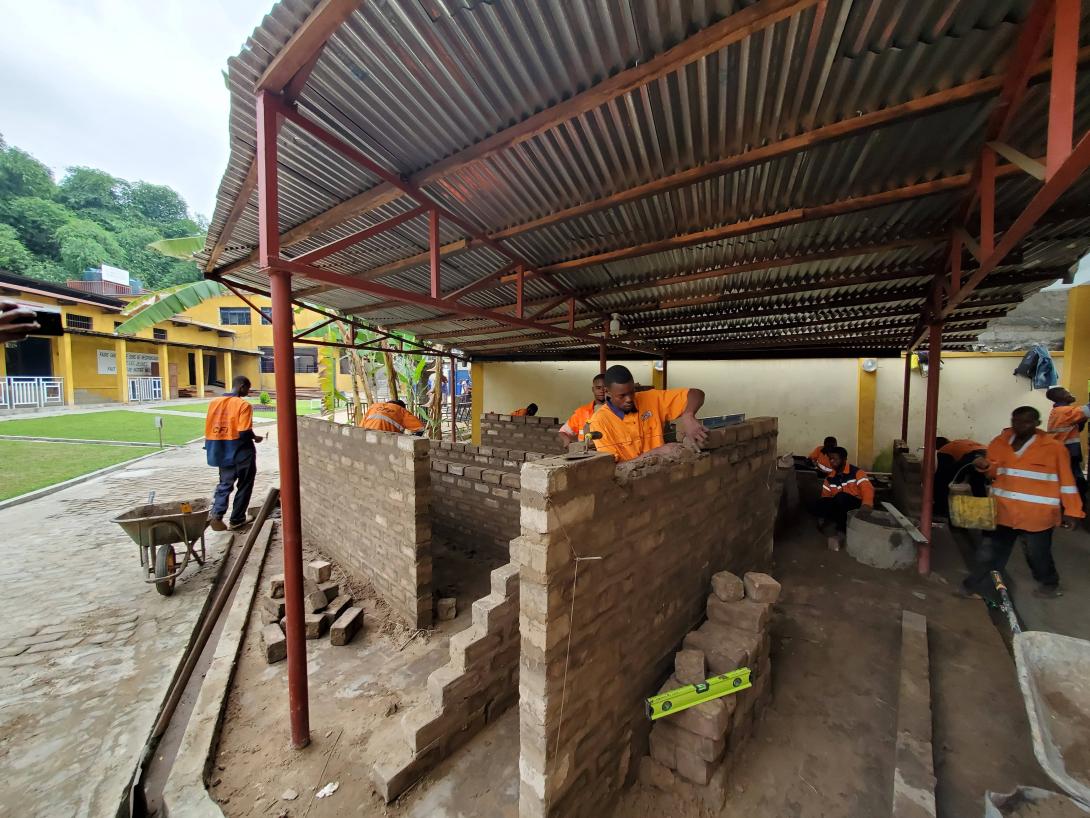

The phenomenon of children in street situations is on the rise in major cities of the Democratic Republic of Congo. In Kinshasa alone, they were estimated to be between 30,000 and 50,000 about ten years ago. What's concerning is that children are finding themselves in this situation at increasingly younger ages, sometimes as young as 4 years old. Moreover, recent health and political crises have had a severe impact on the region, exacerbating the socio-economic needs of already vulnerable populations and further worsening the plight of these children.
Our collaborative efforts with partners aim to assist and support these young individuals, guiding them towards reintegration and a more promising future. This requires specialized support provided by socio-professional educators, who are present in the six different facilities where we operate in the DRC.
John Mboma is a social educator at our partner Communauté du Chemin Neuf (CCN), responsible for vocational integration support. He works at a youth shelter for children in street situations in Kinshasa. He has been working in this professional field for 8 years now. After being initially trained as part of a team, he went to work in the field. He shares the challenges he encounters in his daily work:
These young people have been rejected by their family members and have subsequently lived on the streets. Through vocational integration action, they become the main actors in their own projects
He explains that the goal of the process is to restore their right to employment, which they believed to have lost long ago. Indeed, he recounts stories of several young individuals who, after leaving the centre, built their own families and assumed their responsibilities with dignity and ease. Thanks to the support provided, families are reconstructed with newfound social stability.
However, according to John, the work carried out in vocational training centres has a broader impact. Through their professional development, these individuals contribute to reducing unemployment rates, training other young people, and fostering the country's development through the payment of taxes and fees. Therefore, the project also contributes to improving the country's economic situation and enhances the career prospects of many young people. John takes great pride in his work, and each young person he assists in achieving socio-professional reintegration brings him immense joy. Nevertheless, he acknowledges that his work presents numerous challenges, particularly regarding the training of educators:
The reality in supporting young people involves a lot of self-training. Through meetings, we try to exchange as much as possible to remain aligned with the responsibilities that fall upon us. The experience we gain from each young person helps us increase our expertise, which we can leverage in the present and the future. Strengthening my personal capacities allows me to take steps and contribute to the network of social workers
John Mboma is very happy with his support work with young people, as he receives very positive feedback from many of them. His story exemplifies the dedication of an educator who is deeply committed to his work, empowering numerous young individuals to attain autonomy and independence. Together with our partners, we remain committed to working on the ground and assisting even more vulnerable children and youth in the Democratic Republic of Congo.
